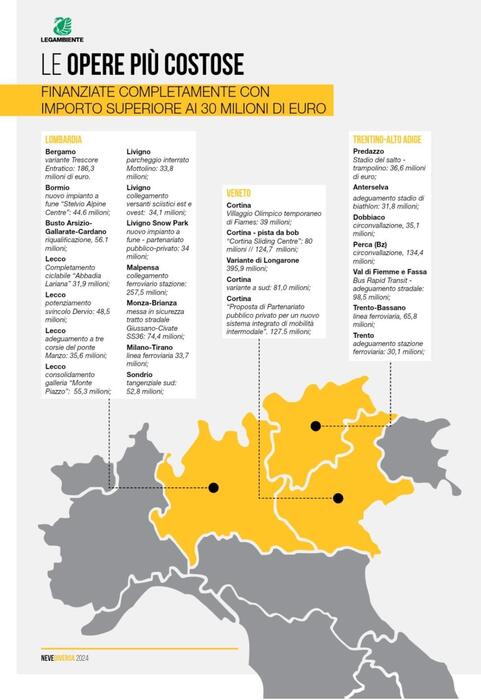Enlarge image
The aerial photo shows the Bremerhaven container terminal
Photo:
Mohssen Assanimoghaddam / picture alliance / dpa
At the moment, two narratives about further economic development are competing with each other.
One is spread in particular by the major central banks.
Their message is: It will take a while before normality is restored.
After the corona crisis, the western economies were still so weakened that they needed massive government support.
Sure, inflation rates are rising right now.
But this is only a "temporary" price hike, believes Christine Lagarde, President of the European Central Bank (ECB).
In the not too distant future, the inflationary dynamic will weaken again on its own.
Her US colleague Jerome Powell, Chairman of the Federal Reserve Bank (Fed), sees it similarly: "We are not over the mountain yet." One must now wait and see how many new jobs could be created - and temporarily accept higher inflation rates .
The message of the two is clear: under no circumstances should one withdraw support from the economy too early.
Central banks and finance ministers would have to continue pumping trillions of euros and dollars into the economy.
But there is also another story, and it goes like this: The economy has long been in a strong upswing. What threatens now is dangerous "overheating," as Larry Summers, the former US Treasury Secretary, criticized recently at a central bank conference in Atlanta. The lockdowns are now followed by a violent boom: In America, it can be grasped with hands everywhere. People are going shopping again, and the Joe Biden government is pushing demand with an unprecedentedly high government deficit (15 percent of economic output). The job market has been swept clean, wages are rising.
That can't go well for much longer, says Summers.
Excessive demand will create massive inflation problems.
At some point the Fed will no longer just let things go on.
You have to take countermeasures, reduce the bond purchases, raise interest rates.
And this change of direction will catch the financial markets, which are currently relying in "dangerous serenity" on the central bank's promise of permanently low interest rates, on the wrong foot.
Probable consequence: the next financial crisis.
An inflationary
boom
would be followed by a rapid change in direction by the central banks (
bang
) - which would
trigger
the next
crash
.
Who is right?
Despite all the uncertainty about the further development: The boom-bang-crash scenario is by no means absurd.
An extraordinary upswing
My impression is that we clearly underestimate the momentum that is currently at work.
This currently already applies to the USA, but following a successful vaccination campaign, it will also apply to Europe from the second half of the year.
(Watch out
for new figures from the Ifo Institute on the business climate
at the EU summit from
Monday
and
Tuesday
.)
We are dealing with an upswing, the anatomy of which is fundamentally different from anything we have experienced since the Second World War (see also my article in the current manager magazin). One factor in this is global parallelism. In the past few decades, global economic developments have mostly been asynchronous: some economies grew dynamically, others paralyzed. That made for a certain self-stabilization. The pandemic is now synchronizing economic cycles.
Economic policy is also acting in a similar way in the major economic areas: the central banks are giving full throttle.
Parliaments and governments have given up their fiscal restraint;
In the USA and the euro zone, the economic policy impulse in 2020 and 2021 taken together will be four times as great as after the financial crisis of 2008. China is pursuing a similarly expansive course.
This is how it should continue: From next year, the planned infrastructure and welfare state program of the US government and the EU's Corona Fund, both largely debt-financed, will ensure further stimulation of demand.
Bottlenecks in people, material, transport capacities
It is obvious that the economy is warming up.
There are already delivery bottlenecks.
This not only applies to raw materials, but also to industrial intermediate products.
According to a recently published survey by the Ifo Institute, 45 percent of manufacturing companies in Germany suffer from bottlenecks in purchasing - the highest value that the Munich researchers have measured since 1991.
Computer chips and wood are scarce, as are ocean freight capacities and much more.
more on the subject
Rare praise from the Monetary Fund: IMF thinks German financial policy is good in the corona crisis
Interactive crisis balance sheet: This is how Corona turned Germany on its headBy Benjamin Bidder
Labor market: Large companies in particular want to cut jobs
It is possible that these tensions will be resolved in the course of the upswing, because it takes a while for production capacities to be ramped up again after the lockdown - and because companies tend to bunker stocks in view of the currently narrow supply, which is also due to the scarcity on the markets tightened.
Whether inflation solidifies and the upturn actually turns into overheating depends in particular on developments on the labor markets.
In an overheating scenario, price and wage increases would rock each other up.
But that would only be the case if companies need employees so urgently that they offer significant wage supplements - and could pass these additional costs on to sales prices.
In fact, many companies are already barely able to find people. There are currently more than eight million vacancies in the United States - the highest figure as far as data goes back. It's not quite that time in Europe yet, but work is also increasingly becoming a scarce production factor on this side of the Atlantic: The vacancy rate is as high as it was in 2017. The trough of last summer has long since passed. In April of this year, the Federal Employment Agency reported 631,000 vacancies in Germany alone - and the trend is rising.
The figures reflect not only the economic situation, but also the demographic development.
As societies age, workers are becoming increasingly scarce in affluent economies.
In addition, there is the creeping disintegration of the world economy: globalization is being turned back, it is becoming more difficult to switch to foreign production sites.
This also opens up scope for wage increases.
Good for the employees - as long as life does not quickly become more expensive.
The post-corona demand push is now encountering these structurally changed production conditions.
It would be surprising if that combination didn't translate into more inflation.
The question remains about the crash.
Worldwide faults
display
Short-circuit policy: How permanent outrage destroys our democracy
Author: Henrik Müller
Editor: Piper
Number of pages: 256
Author: Henrik Müller
Editor: Piper
Number of pages: 256
Buy for € 22.00
Price query time
May 23, 2021 4.20 p.m.
No guarantee
Order from Amazon
Order from Thalia
Product reviews are purely editorial and independent.
Via the so-called affiliate links above, we usually receive a commission from the dealer when making a purchase.
More information here
So far, the financial markets have been building on the scenario of extremely low inflation rates and interest rates.
Governments, companies and private households have pushed their debt upwards, relying on long-term low financing costs.
At the same time, the valuations of many assets are extremely optimistic: stocks, real estate, government bonds - the prices are high because the cheap money has to go somewhere.
The potential for setbacks is correspondingly large.
The risks are immense, not just in the USA, but also in the euro zone.
In Larry Summers' scenario cited above, which assumes interest rates will suddenly rise, some financing models that may seem solid so far could prove to be no longer viable.
The result would be a wave of bankruptcies - coupled with enormous upheavals.
The accelerating post-corona boom, which may feel so good at the moment, would be followed by a nasty financial crisis in the not too distant future.
In fact, the financial markets are beginning to doubt the central banks' narrative of the sustained inflation-free upswing.
In the US, long-term interest rates have been rising on the capital markets for months.
This development has now spread to Europe as well.
Because investors look to the scenario of rising inflation rates and interest rates, they are demanding higher returns.
Rates are still low and valuations are high.
But the gradual upward movement is a sign that the boom-bang-crash story is gaining more and more listeners.
In the competition for interpretation sovereignty, the central banks have so far dominated.
But doubts about her narrative are growing.
The most important business dates of the week ahead
Open assembly area
Brussels -
The world after Corona
- Special summit of the EU heads of state and government (until Tuesday).
It is particularly about the fight against the pandemic, relations with Russia and Great Britain and climate protection.
Expand Tuesday area
Munich -
Upwards
- The Ifo Institute publishes its business climate index, the most important leading indicator for the German economy.
Expand Wednesday area
Damascus -
The Farce as Tragedy
- Presidential Election in Syria.
Ruler Assad, who has been waging war against parts of his own people for years, can - thanks to manipulation and repression - count on a solid majority.
AGM season I
- General meetings of HelloFresh, 1 & 1 Drillisch, Air France-KLM, Amazon, Facebook.
Expand Thursday area
Berlin -
Who turned the clock?
- Chancellor Merkel and the prime ministers of the federal states discuss - for how many times?
- about how to proceed with the corona vaccinations.
Brussels -
Taming Power
- Council of the EU on competition.
The responsible ministers discuss, the European Commission has ultimate responsibility.
AGM season II
- Annual General Meeting of Deutsche Bank.
Business Figures II
- from United Internet, HP.
Open area Friday
Lisbon -
Why is there actually no EU army?
- Informal meeting of EU defense ministers in turbulent times.
Tokyo -
swept empty
- labor market
data
from Japan.
AGM season III
- Total general meeting.








